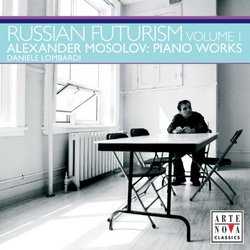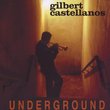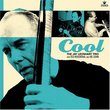| All Artists: Alexander Mosolov, Daniele Lombardi Title: Alexander Mosolov: Piano Works Members Wishing: 2 Total Copies: 0 Label: Arte Nova Classics Original Release Date: 1/1/2007 Re-Release Date: 3/13/2007 Genre: Classical Styles: Chamber Music, Forms & Genres, Sonatas, Historical Periods, Classical (c.1770-1830), Modern, 20th, & 21st Century Number of Discs: 1 SwapaCD Credits: 1 UPC: 723721269456 |
Search - Alexander Mosolov, Daniele Lombardi :: Alexander Mosolov: Piano Works
 | Alexander Mosolov, Daniele Lombardi Alexander Mosolov: Piano Works Genre: Classical
World Premiere Recordings! On September 21, 1928, Prokofiev wrote to Diaghilev: "I told you about the young Russian composers Shostakovich, Mosolov, and Popov, who stand far above the others due to their talent." Today,... more » |
Larger Image |
CD DetailsSynopsis
Album Description World Premiere Recordings! On September 21, 1928, Prokofiev wrote to Diaghilev: "I told you about the young Russian composers Shostakovich, Mosolov, and Popov, who stand far above the others due to their talent." Today, only Shostakovich is a household name. But these other two are tremendously intriguing in their own right. Alexander Mosolov (1900-1973) had a brief period of notoriety in the 1920s with a very short and very noisy orchestral piece called The Iron Foundry, but there was a great deal more to him than that bit of juvenile nose-thumbing. Similar CDs
|
CD ReviewsRussian Futurism on the Piano Robin Friedman | Washington, D.C. United States | 06/25/2009 (5 out of 5 stars) "It is possible to make real finds rummaging around budget-priced classical CDs. I had no prior familiarity with Russian futurism or with the compositions of Alexander Mosolov (1900 - 1973). But with the low price of this Arte Nova recording, I decided to try to fill this gap in my musical knowledge. This recording consists of dark, deeply passionate and pained, modernistic works for the piano that will stay with me for a long time.
The Russian Futurist movement developed from an earlier Italian futurism of the first two decades of the Twentieth Century. The Futurist movement was avowedly iconoclastic and avant-garde with the goal of breaking down complacency and stereotypes and moving forward in new directions. The music was written for the new machine age. For all its difficulty, the Russian Futurist composers hoped, overly optimistically that their works, with their visceral character, would attract many people who would not otherwise listen to classical music. Alexander Mosolov was a leading Futurist composer who achieved notoriety in an orchestral composition that tried to replicate the sounds of a factory. Mosolov's piano music is brooding, serious, and discordant. It shows a strong sense for the timbre of the piano as it emphasizes large chords and figurations in the instrument's lowest register. Frequently, the bass is played together with, or is contrasted with, light fluttering themes at the top of the keyboard. There is a good deal of impassioned, highly rhythmical repetition of chords and walking figured patters. Mosolov uses repeated contrasts and sudden shifts in tempo and volume. The thematic material tends to be short, but Mosolov writes quirky, wandering themes over a brooding bass line. The music is virtuosic and difficult to perform Mosolov's piano music is performed on this CD by Daniele Lombardi, a powerful pianist who specializes in difficult avant-garde contemporary works. Lombardi seems to me to understand this music from the inside. I doubt that it could be played with more passion or sympathy. The CD includes Mosolov's fourth and fifth piano sonatas together with "Turkmenian Nights", a three-movement piece based upon folk material. The sonata no. 4, op. 11 consists of a single movement. The opening is full of clangor, but it is soon followed by a lengthy slow section featuring repeated high notes played over a bass line which is alternatively heavily chordal or which consists of rolling arpeggios. Pounding aggressively angry moments in the work alternate with passages of reflection. The tempos shift repeatedly as well between the presto of the opening material to the very slow sections in the middle of the piece. This is a passionately angry but creative piece. The four- movement sonata no. 5 opus 12 is probably Mosolov's masterwork in the form and has been recorded before. The four movements are highly varied and difficult, but the work makes an integrated whole. It is deeply dark, challenging music. The opening movement, marked allegro affiniato, opens with a dramatic chordal theme which then is contrasted with a light lyrical theme played over a simple accompaniment figure. There are huge passages of large chords in the bass, contrasted with a quietly haunting theme and an abrupt end. The second movement "Elegia" features an odd, rhythmic melody which moves over repeated large chords and arpeggios in the bass. The lyricism of the melody contrasts with the harsh staccato of much of the accompaniment. The third movement is a furiously anguished scherzo with many sharply repeated notes, crushing chords, and a large glissando passage towards the end. But the climax of this sonata is the lengthy finale, which Lombardi takes nearly 13 minutes to play. A slow walking bass theme pervades the music. It is sometimes quietly sinister, sometimes loud and booming. The bass line predominates throughout, giving the movement a foreboding, angry character, with accompaniments from a high line in the piano or from equally passionate chords in the instrument's middle register. This is an astounding movement that concludes a strange sonata that deserves to be known. The three pieces of "Turkmenian Nights" date from 1935 and were an attempt to soften the composer's earlier forbidding music. The first piece, andante con moto, contrasts its pulsating opening with an almost bitterly lyrical middle section followed by a furious return of the big chords of the opening. The second of the three nights has some lovely song-like material contrasted against a loud thundering bass. The finale is a short, swirly rhythmic and wandering. It is both a joy and a challenge to hear new music. This CD will appeal to adventurous listeners, to those who love Russian music, and to those fascinated by modernism. Robin Friedman" |

 Track Listings (8) - Disc #1
Track Listings (8) - Disc #1



